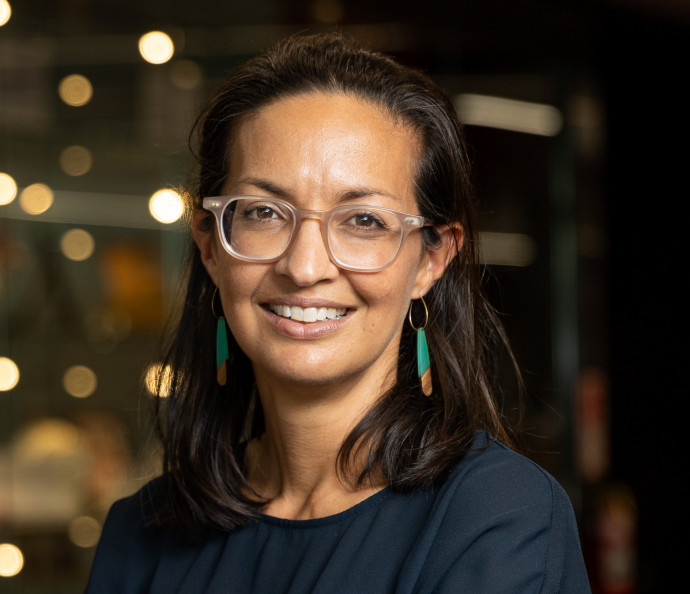Emma Sharp

2023: Dr Emma Sharp, Waipapa Taumata Rau The University of Auckland, has been awarded a Rutherford Discovery Fellowship for research titled ‘Aotearoa New Zealand's diverse soil values: Examining politics of soil 'management' from the ground up.’
Published on 27 Whiringa-ā-nuku October 2023
Biography
Dr Emma Sharp is a Senior Lecturer in Environmental Geography and an academic leader in the social science of Aotearoa New Zealand’s soils and alternative food production. Her research includes food and environmental politics, feminist concepts of care, alternative economies, and citizen science. Dr Sharp’s work is heavily grounded in the community – she co-leads Soilsafe Aotearoa, an acclaimed community research programme where public, (as well as marae, and community-gardens in pilot projects) can have their soil tested for contaminants for free and learn and share about soil and gardens.
Dr Sharp runs the Critical Food Studies group at the University of Auckland, co-leads Aotearoa’s Food Futures cluster for Te Pūnaha Matatini, and is an Associate Investigator for the Food Waste Innovation theme at the University of Otago. She is a founding member of Gender and Geography Aotearoa, convenes the Australasian Agrifoods Research Network, and is the Early Career Researcher (ECR) lead of the Auckland branch of the New Zealand Geographical Society. She has recieved numerous early career awards, most recently the University of Auckland Early Career Research Excellence Award in 2022.
Research summary
In a distinctly agricultural nation like Aotearoa New Zealand, soil has been principally viewed from either a ‘pure’ science perspective, or a profit-driven orientation. This has perpetuated a style of soil ‘management’ that has left our soils contaminated and depleted. This not only affects our farms and farmers but threatens our biodiversity in a country where 80+% of our our vascular plant species are found only in New Zealand. Moreover, in te ao Māori, soil is considered taonga and whanaunga, holding ancestral connections as the root of tūrangawaewae and whakapapa. It is a source of shelter, kai, and manaakitanga. Aotearoa is not alone in these challenges; global action to redress soil degradation through improved stewardship is urgently needed to secure a more liveable future.
Dr Emma Sharp. Photo: Te Pūnaha Matatini
Dr Sharp’s Rutherford Discovery Fellowship aims to transform soil management by fostering more diverse and inclusive approaches to soil values, valuation, knowledge, governance and public engagement. Drawing on scholarship that highlights social, spiritual, and Indigenous ways of knowing and relations with soil or environment, she will examine soil as a ‘body multiple’, presenting an alternative view that throws into question human relationships with matter – and why it matters.
Dr Sharp will look at two important data sources, among others, to examine past and present attitudes towards soil in Aotearoa. One source includes popular TV programme Country Calendar, well-known for its portrayal of ‘iconic rural Kiwi life’ since 1966. The other involves her co-founded Soilsafe initiative that holds more than 4000 domestic soil samples and narratives garnered through surveys of adults and children. Collaborating with diverse scholars, sectors, and soil practitioners, including māra kaitiaki, Dr Sharp aims to find how existing and emerging practices contribute to diverse understandings, and how these can translate to changing the health of our soil. By reframing soil management through alternative perspectives, we may forge the much needed path to soil regeneration and improve environmental kaitiakitanga for the future.
